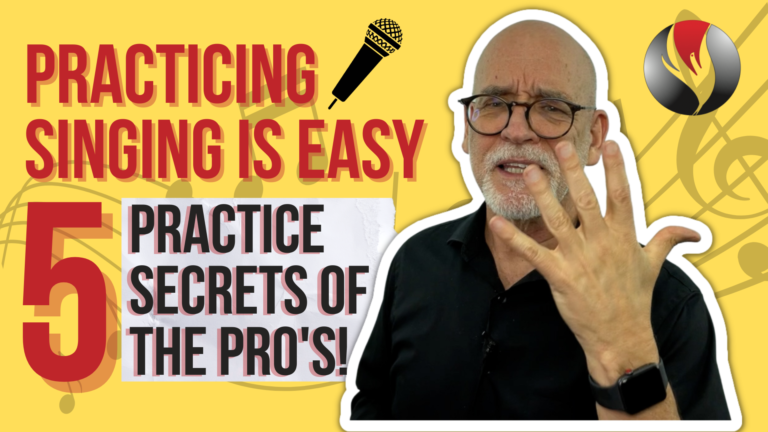(Reference Links Listed Below)
If you get a vocal hemorrhage, you experience difficult emotions. Is my career over? Will I ever sing again. How can I ever get over this? Will they have to operate?
What is a vocal hemorrhage? How do you get it. How do you prevent it? What do you do if it happens to you?
A friend who is also voice teacher had a vocal hemorrhage. I watched him go through some difficult emotions. He had to stop speaking immediately. He could not teach or sing. He worried he would never regain his ability to speak without re-injuring his voice. His career seemed to hang in the balance. His recovery was uncertain.
Professional singers with a vocal hemorrhage face the same questions. Is my career over? Will I ever sing again?
What is a Vocal Hemorrhage?
From the American Academy of Otolaryngology comes this definition:
Vocal cord hemorrhage results when one of the blood vessels on the surface of the vocal cord ruptures and the soft tissues of the vocal cord fill with blood. It is considered a vocal emergency.
Dr. Reena Gupta of the Osborne Head and Neck Institute says:
“It is like a bruise anywhere else on your body. If you bang your head on the car door, blood vessels in your skin will break and they will leak blood into your skin. The resulting purplish bump slowly heals itself, as long as you do not continue to hit it.
How do you get a Vocal Hemorrhage?
The following can cause a sudden loss of voice:
- Singing aggressive styles like Scream, rock, gospel
- Singing incorrectly (i.e., poor technique, especially when sick)
- Singing in poor environments (i.e., poor amplification, poor monitors, loud environment, etc)
- Throat clearing
- Coughing
- Shouting or yelling
- Other strenuous vocal tasks
What do you do if it happens to you?
A sudden loss of voice following one of these events is considered a vocal emergency. Begin immediate vocal rest. Stop talking, singing, coughing and clearing your voice. No whispering and no sounds from your vocal cords.
If you lose your voice after strenuous voice use, see your Otolaryngologist as soon as possible. Follow the doctor’s directions until you heal. Absolute vocal rest after an hemorrhage may last more than a week. The doctor will guide your recovery.
If you don’t follow directions you could cause more injury which would lead to complications such as surgery, and or permanent hoarseness and loss of your ability to sing.
How do I prevent a hemorrhage?
Dr. Gupta says:
“There are many things you can do to prevent a vocal hemorrhage:
- Hydrate well
- Learn perfect vocal technique [voice lessons]
- Have periodic voice checks (to identify at risk blood vessels)
- Keep your voice environment clean (no smoking, no medical problems affecting your voice, clean performance space, etc)
- Avoid steroids
- Avoid pushing your voice”
Links on Vocal Hemorrhages
http://www.entnet.org/content/hoarseness
http://www.ohniww.org/prevent-vocal-hemorrhage/
http://www.voicedoctorla.com/voice-disorders/vocal-hemorrhage/
My friend had an added complication. The ruptured blood vessel came to the surface of his vocal cord. Normally the hemorrhaged vessel remains enclosed within the vocal fold. He was told he would have to have surgery to remove the vessel.
After complete vocal rest for a period of time, he started vocal rehabilitation with his vocal instructor, Seth Riggs. Over a period of weeks the vocal cord began to re-incorporate into the vocal fold. This was a fortunate and less common occurrence. He was able to avoid surgery and is back to teaching and singing.
An important part of the advice of vocal health professionals is to learn perfect vocal technique.
A great start is to discover your vocal type and do exercises designed for your specific vocal type.
To learn your vocal type, visit PowerToSing.com and take the vocal test. Take the quiz and discover your vocal type. Visit the Knowledge Center and watch the videos about your vocal type. Download the free exercises for your vocal type and begin improving your voice immediately.
I’m Chuck Gilmore with Power To Sing. You can sing higher with beauty, confidence and power.
I’ll see you inside the next video.












Responses
Thanks Tresa. I see that same thing too. It’s especially hard when they see friends “yelling” their voices. But in the long run, they will do so much more with a healthy voice. In the long run they’ll appreciate your guidance!
Thank you for your informative posts. As a voice teacher, I work mainly with young students who often charge in and want to be powerhouse vocalists without knowing the dangers that await those who do not follow the proper ways of caring for their voice. Your information is concise and to the point and hopefully will prevent many from making mistakes along the way.